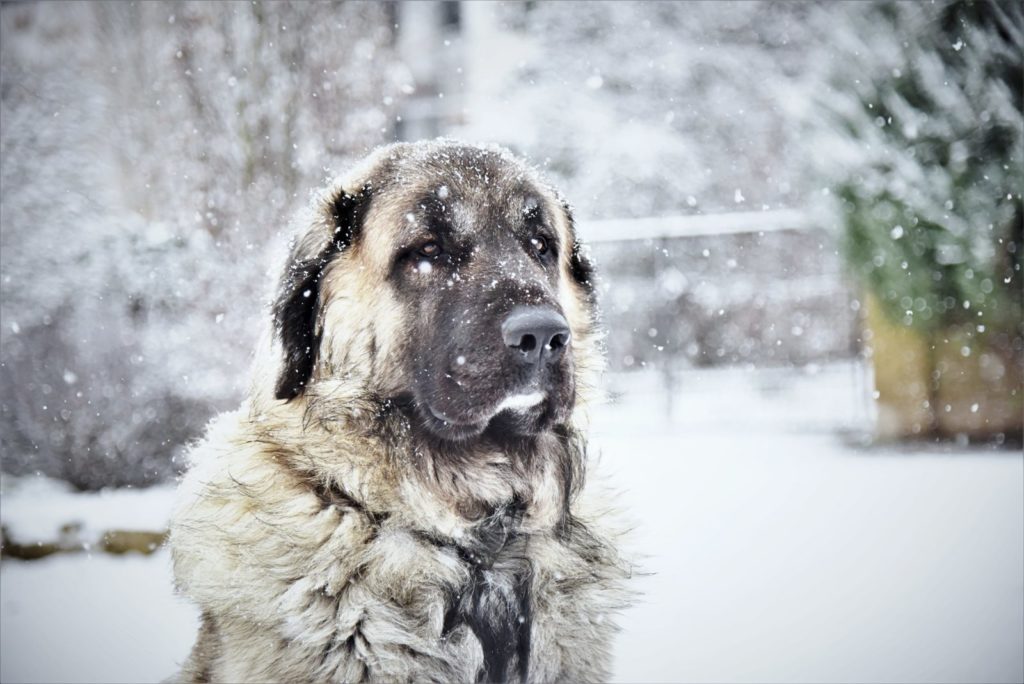With the start of February around the corner, winter weather is just now setting in for the season. The chilly temperatures and winter weather of this season also mean that it is time to take additional health and safety measures to ensure that your dog is safe and healthy throughout the season. As the snow and temperatures start to fall in upcoming weeks, consider these five winter health and safety tips for your dog this season.

Although our dogs appear to be fuzzy and warm in their winter coats, freezing temperatures can be just as painful to them as they are to us outside.
Keep Your Dog Out of Freezing Temperatures
Although our dogs appear to be fuzzy and warm in their winter coats, freezing temperatures can be just as painful to them as they are to us outside. With this in mind, it is crucial to minimize the time that your dog spends outside to ensure that they are safe from the harmful effects of cold weather on their paws, skin, and eyes this season.
Give Your Dog Plenty of Food and Water
Because staying warm requires burning a little extra energy, your dog will need plenty of food to stay warm during chilly months. Much like humans, your pet can also easily become dehydrated in dry, cold air, so water is also necessary to keep them healthy during winter months.
Protect Their Paws from Cracking and Irritation
Similar to our skin, the skin on a dogs paws is often susceptible to cracking and irritation during frigid winter months. Protect your dog’s paws with a balm or jelly that will keep them moisturized and comfortable for long walks. Certain dog breeds may also require booties during the winter to protect their smaller feet from freezing when they are outside.
Keep Your Dog Warm with a Longer Coat
No matter how unruly your dog’s coat may seem, it is necessary for keeping them warm in winter months. If you find that long hair has become unmanageable with ice and tangles, trim it only slightly shorter without shaving to make sure that your dog stays comfortable and warm.
Rinse Salt and Harmful Ice-Melting Chemicals Off After Walks
Salt and ice-melting chemicals are great for keeping ice off of sidewalks. However, they can be particularly harmful to your dog if they are absorbed through their skin or ingested as they are grooming themselves. For this reason, it is important to rinse off your dog’s belly following a long walk where they may be exposed to these potentially harmful winter chemicals.
Trust the Care of Your Pet to the Professionals at Everhart Veterinary Medicine!
At Everhart Veterinary Medicine, our veterinary professionals strive to provide your pet with the very best of veterinary care. We believe that the best care for your pet should be provided by experienced, compassionate, and knowledgeable veterinary professionals. With two Maryland locations in both Baltimore and Pasadena, we are always ready to welcome your pet as a new patient! Give us a call today at 410-355-3131 or 410-793-7670! For more information, as well as updates on veterinary news and topics, visit us on Facebook, Twitter, Google+, LinkedIn, or Pinterest!
